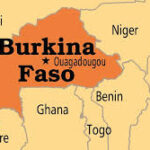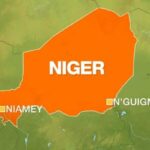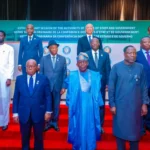Discussing a recent trip before I’d embarked on it, someone very close to me described travel within Africa to be much like commuting in Abuja using the city’s infamous ‘Along’ taxis. She was absolutely right. So, after a crazy flight route that defied common sense or practicality, I finally landed in Ouagadougou, capital of Burkina Faso. It was evening, so there wasn’t much I could do, except eat dinner and go to bed. The next week was going to see me cramming in as much of this quaintly beautiful West African nation into my memory as possible. And boy, did I.
I admittedly was a little ignorant about Burkina Faso, with my entire cache of knowledge consisting only of the late, great Thomas Sankara, the sometimes-excellent Burkinabé national football team, and the iconic filmmaker Gaston Kaboré (no relation to current President Roch Marc Christian Kaboré, to the best of my knowledge). Yes, even that general knowledge of mine is pretty good if I may so myself. But imagine my wide-eyed wonder at discovering one new aspect after another, of the country and its people. For example, a staggering number of Nigerian nationals have made the country their home, and are living peaceful, fulfilled lives. Again, that’s a story for another day.
Obviously, there is so much to write about, which will require entire feature stories and photos, which you will get in due time. But I have many observations that might not necessarily make it into those stories. For instance, in no time, I noticed that within the capital city – or any other city I visited, including towns and villages for that matter – women of various ages, would either be riding bicycles, or motorcycles, with gusto and confidence! And I mean it when I say a variety of women, and girls. Those in hijabs, those wearing native dresses, and even those sporting jeans, or the latest ‘oyinbo’ fashion. There were even mothers with babies strapped to their backs, or the ones with one or two in front, additionally, all safely strapped to their moms.
It was a sight to behold. So I spoke to a couple of them. Aicha, a schoolteacher and mother-of-one, told me she grew up seeing women on bicycles and motorbikes, so it was a no-brainer that she hopped on one as soon as she was of age. I explained to her that it wasn’t so widespread in my country, Nigeria, and she gave me a look of sincere sympathy. “They don’t like bicycles or motorbikes much? Poor Nigerian women! They have no idea what they’re missing. The freedom of mobility it offers is fantastic,” she remarked in French, and I pondered what she said.
My observations about these amazing amazons riding on bicycles and motorbikes, is that of a society where women are strong, valid contributors who are not restricted by gender, or any other factor for that matter. Which made it quite unsurprising that President Kaboré is driving a major point home ahead of the country’s election slated for November 20, of affirmative action that he hopes will see fifty percent of his key appointments go to women. As it is, some government agencies have either female heads, or women in strategic roles.
Driving round Ouagadougou, and later on Bobo-Dioulasso (which is the second largest city in Burkina Faso), I noticed a good number of spectacular mosques, as well as stunning churches. There were some good examples of old French architecture too. There also are a lot of restaurants, as well as open grills selling street food. The roads in the capital city vary in width, depending on how central each area is, but are always clean and litter-free. Travelling around later on, I noticed that the rural areas also had one thing in common: a cleanliness that was beyond aesthetics, and probably having more to do with culture. The people are also generally friendly, or at least as friendly as language would allow.
Then there’s the food. Ah, the food. I sampled as much as I possibly could, which to be honest is a lot. But apart from a mad-peppery sauce made from yellow ‘atarugu’ which I love, there’s a kind of dish they make with local rice, very similar to jollof, that one needs to taste to believe how delicious it is. Accompanied by grilled local chicken spiced to Yoruba levels of tasty hotness, it is also seasoned by their own version of ‘daddawa’, or locust beans if you want to get all posh. I went back for seconds and thirds, unashamedly.
I make friends easily, so the fact that I amassed a number of them in a week isn’t by any means impressive. After all, they made it easy for me with their warmth, honesty, and kindness. By the time I was leaving for the airport, I was having a genuine feeling that I would miss the city, as well as its citizens, and of course the country itself. For in Ouagadougou I got reminded of the oneness of all of us Africans, the painful divisions created by colonialism, as well as the undeniable brotherhood that even European overlords couldn’t possibly have dismantled. ‘Land of Upright People’ indeed.

 Join Daily Trust WhatsApp Community For Quick Access To News and Happenings Around You.
Join Daily Trust WhatsApp Community For Quick Access To News and Happenings Around You.


